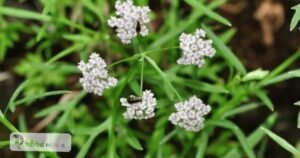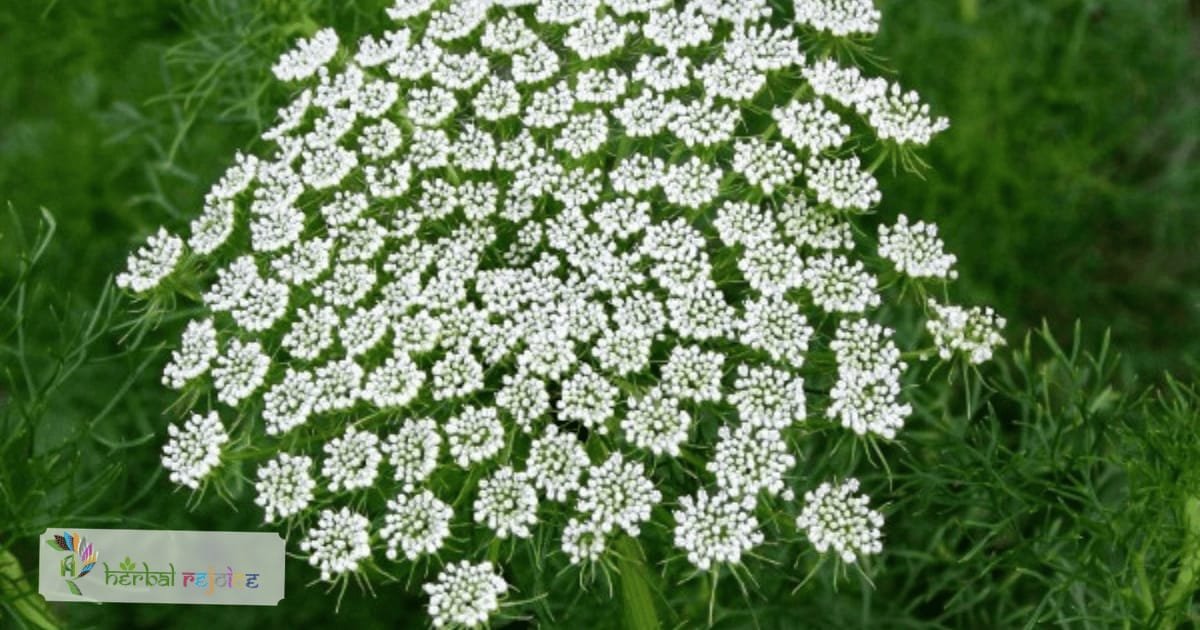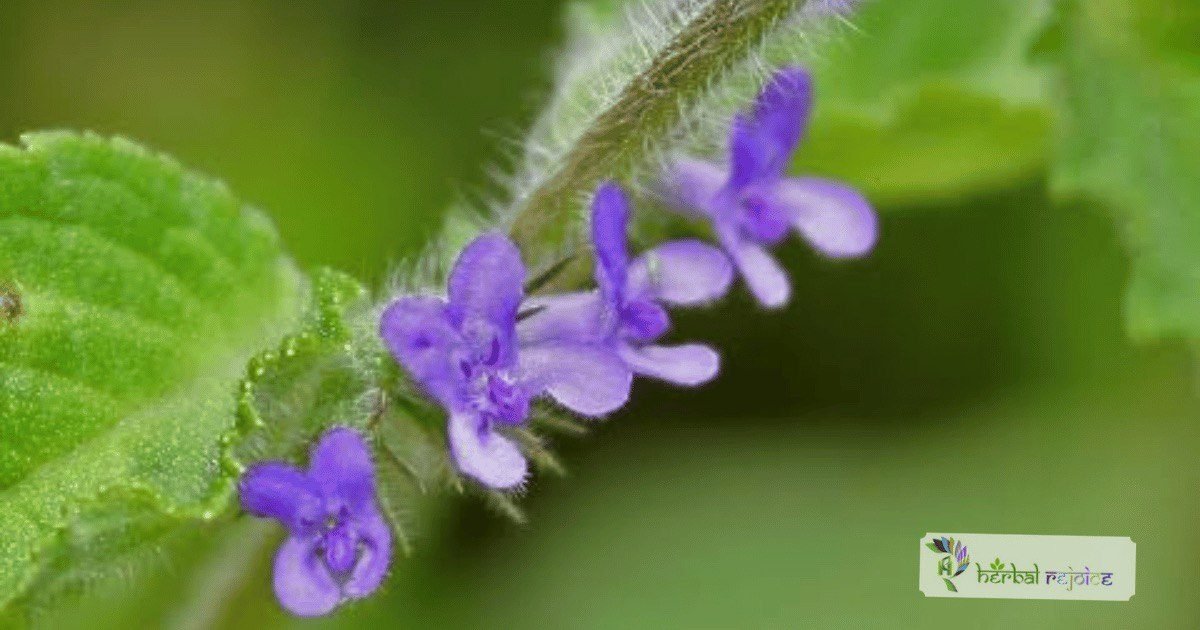Introduction
Trachyspermum roxburghianum, also known as Ajmud in English, is a plant that belongs to the Umbelliferae family, also known as Apiaceae. It is commonly cultivated throughout India. This plant has various uses in traditional medicine systems such as Ayurveda, Unani, and Siddha. The seeds of Ajomoda used in traditional medicine systems to treat digestive issues, respiratory conditions, and menstrual disorders.

Names and Habitat
In Ayurveda, Trachyspermum roxburghianum is referred to as Ajamodaa, Ajamoda, Ayamoda, Ajmoja, and Dipyaka. It is known for its carminative, stomachic, stimulant, and cardiac tonic properties.
The plant’s seeds are mainly used to treat conditions like dyspepsia, vomiting, hiccough, bronchitis, asthma, and pain in the bladder. It is also used as an emmenagogue to promote menstrual flow.
Key Components Of Ajomoda
The seeds of Trachyspermum roxburghianum contain several coumarins, including bergaptene, 7-methoxy-6-methyl coumarin, and umbelliferone. They also contain beta-sitosterol.
The essential oil extracted from the seeds primarily consists of d-limonene (35.1%), alpha-terpinene (19.4%), d-linalool (4.7%), dl-terpineol (5.7%), dl-piperitone (13.6%), and thymol (1.7%). These constituents contribute to the plant’s therapeutic properties.
Pharmacological Activity of Ajomoda
Studies have shown that Trachyspermum roxburghianum has various pharmacological activities. In animal studies, the fruit of the plant induced hyperactivity of the central nervous system in mice.
It also showed activity against Entamoeba histolytica, a parasite that causes amoebiasis. The ketonic substances present in the plant exhibit powerful antispasmodic activity.
Furthermore, the fruit, even after the extraction of essential oil, exhibited pronounced cardiotonic activity. The essential oil produced a marked diuretic effect in rabbits and lowered blood pressure in dogs and rats.
Conclusion
In conclusion, Trachyspermum roxburghianum, commonly known as Ajmud, is a medicinal plant with various therapeutic properties. Its seeds are used in traditional medicine systems to treat digestive issues, respiratory conditions, and menstrual disorders.
The plant contains coumarins, beta-sitosterol, and a variety of essential oil constituents. It has shown pharmacological activities such as central nervous system stimulation, anti-amoebic activity, antispasmodic effects, cardiotonic activity, diuretic effects, and blood pressure-lowering effects.
Frequently Asked Questions(FAQs)
What is Trachyspermum roxburghianum?
Trachyspermum roxburghianum is a plant belonging to the Umbelliferae family, commonly known as Ajmud in English.
What are the traditional uses of Trachyspermum roxburghianum?
In traditional medicine systems such as Ayurveda, Unani, and Siddha, Trachyspermum roxburghianum is used for its carminative, stomachic, stimulant, and cardiac tonic properties.
How is Trachyspermum roxburghianum used in Ayurveda?
In Ayurveda, Trachyspermum roxburghianum is referred to as Ajamodaa, Ajamoda, Ayamoda, Ajmoja, and Dipyaka. Its seeds are used to treat conditions like dyspepsia, vomiting, hiccough, bronchitis, asthma, and bladder pain.
What compounds are found in the seeds of Trachyspermum roxburghianum?
The seeds of Trachyspermum roxburghianum contain several coumarins, including bergaptene, 7-methoxy-6-methyl coumarin, and umbelliferone. They also contain beta-sitosterol.
What constituents are present in the essential oil of Trachyspermum roxburghianum?
The essential oil extracted from the seeds of Trachyspermum roxburghianum primarily consists of d-limonene, alpha-terpinene, d-linalool, dl-terpineol, dl-piperitone, and thymol.
What are the therapeutic properties of Trachyspermum roxburghianum?
Trachyspermum roxburghianum has carminative, stomachic, stimulant, and cardiac tonic properties.
What conditions can Trachyspermum roxburghianum be used to treat?
Trachyspermum roxburghianum can be used to treat conditions such as dyspepsia, vomiting, hiccough, bronchitis, asthma, and pain in the bladder.
Does Trachyspermum roxburghianum have any pharmacological activities?
Studies have shown that Trachyspermum roxburghianum exhibits central nervous system stimulation, anti-amoebic activity, antispasmodic effects, cardiotonic activity, diuretic effects, and blood pressure-lowering effects.
What effects does Trachyspermum roxburghianum have on the central nervous system?
In animal studies, the fruit of Trachyspermum roxburghianum induced hyperactivity of the central nervous system in mice.
Can Trachyspermum roxburghianum be used to treat parasitic infections?
Trachyspermum roxburghianum has shown activity against Entamoeba histolytica, a parasite that causes amoebiasis.
Does Trachyspermum roxburghianum have any antispasmodic activity?
Yes, the ketonic substances present in Trachyspermum roxburghianum exhibit powerful antispasmodic activity.
Does Trachyspermum roxburghianum have any cardiotonic properties?
Even after the extraction of essential oil, the fruit of Trachyspermum roxburghianum exhibited pronounced cardiotonic activity.
Can Trachyspermum roxburghianum have a diuretic effect?
Yes, the essential oil of Trachyspermum roxburghianum produced a marked diuretic effect in rabbits.
Does Trachyspermum roxburghianum have any effect on blood pressure?
Yes, Trachyspermum roxburghianum has been shown to lower blood pressure in dogs and rats.
What is the English name for Trachyspermum roxburghianum?
Trachyspermum roxburghianum is commonly known as Ajmud in English.





